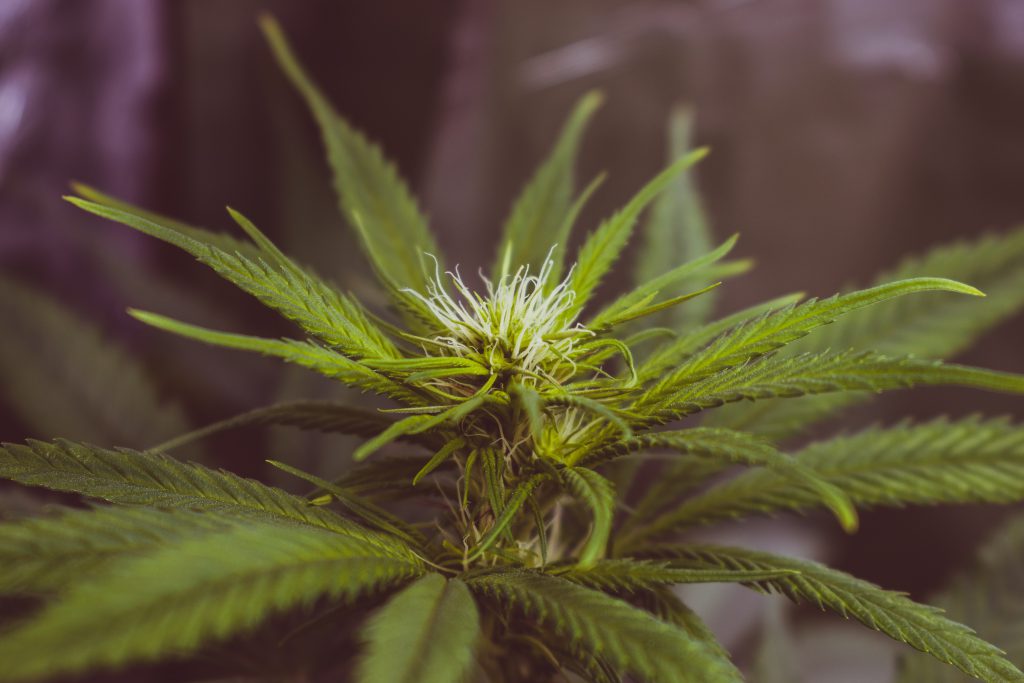
It seems like everywhere you turn these days, you see something about CBD. In the chronic illness community, you see CBD being added to the daily roster of items being used to relieve symptoms and improve overall health. I started my journey with CBD about three years ago and it has helped tremendously with pain and inflammation, and also my sleep.
Because so many people have asked me what CBD is, I felt an urging to share this extremely informative article on the topic, created by KalmKanna. It explains the differences in plant types, how CBD works, what the side effects could be, and what symptoms it can target. (This article isn’t an ad and does not contain any affiliate links. It is to help increase your knowledge).
If you need a primer on all things CBD, this is for you:
CBD, also known as Cannabidiol, is one of 60+ natural cannabinoid compounds found in Cannabis. CBD oil is extracted from the plant’s secretions and concentrated into the many forms we are accustomed to today. Both marijuana and hemp are forms of the cannabis plant, but cannabis does not mean that specific plant is classified as marijuana.
Marijuana is the plant that most people are familiar with for its psychoactive properties that contain THC. Cannabis is the core name and general umbrella term which all forms of marijuana and hemp fall under. Only recently THC was the most well-known and studied cannabinoid due to its abundance in marijuana. The second most prevalent cannabinoid in marijuana and the top non-psychoactive cannabinoid found in hemp, CBD has been gaining momentum in the scientific community and media.
Unlike THC, CBD does not have any psychoactive (non-intoxicating) properties where you would feel “high” which contributes to its legalization across the United States. This has been a huge help to those who cannot access medical marijuana in their current states to help with their chronic pain or any other symptom they may be actively treating. CBD does not typically have any immediate noticeable effect (generally will have to wait 30 minutes for relief to set in), though some customers have reported otherwise when using isolates. This also has a lot to do with dosages (mg) you’re taking and finding what your dosage should be. The higher your dosage the quicker the relief.
Our CBD products and extracts are derived from hemp (not marijuana), and are also referred to as full spectrum CBD, CBD-rich hemp oil, hemp-derived CBD oil, CBD-rich cannabis oil, or “hemp extracts,” since they typically contain more than just CBD. However, CBD oil is very different from the hemp seed oil and organic hemp oil that is on the market, as these are derived from hemp seeds (not the resin) and do not contain cannabidiol, which is not going to give you the desired health benefits CBD derived hemp products are known for.
All of Kalm Kanna’s high-CBD hemp crops are grown legally, and all products are rigorously tested for safety, quality, and cannabinoid content.
How does CBD work?
CBD interacts with the body’s endocannabinoid system, an intricate system of millions of cannabinoid receptors found all through your body (even our pets), but they are primarily clustered in the brain and central nervous system. While CBD is plant-based, your body also naturally produces cannabinoids, known as endocannabinoids. Almost every organ of your body, including your skin and digestive tract, contains cannabinoid receptors. The endocannabinoid system has four primary purposes including neuroprotection, stress relief, immune response, regulating the body’s general state of balance, impacting faculties such as appetite, sleep, mood, and pain.
Unlike THC, CBD does not interact directly with the two classical cannabinoid receptors (CB1 and CB2). This is why CBD does not cause any psychoactive effect. Instead, CBD inhibits the enzymes that break down endocannabinoids, leading to an increase in your body’s naturally-produced cannabinoids.
What is the endocannabinoid system (ECS)?
“The endocannabinoid system (ECS) is a group of cannabinoid receptors located in the brain and throughout the central and peripheral nervous systems, consisting of neuromodulatory lipids and their receptors.” The ECS is found in all mammals.
There are two main types of receptors in the ECS, CB1 and CB2. CB1 receptors are primarily located in the central nervous system and brain and CB2 are generally found in the peripheral nervous system.
Due to governments around the globe and their air tight restrictions in granting permission to do full studies it has essentially made it impossible to publish their findings with legitimate backing of medical institutions that the users of CBD are experiencing. The ECS has been known of in the scientific and medical world since the 1980’s.
Side Effects of Cannabidiol
While Cannabidiol is generally well-tolerated, some consumers do experience side effects, especially during their first time using cannabidiol. Side effects can include a dry mouth, light headedness (from lowered blood pressure), drowsiness, and sometimes nausea. All of these symptoms are nowhere near fatal and can be fixed by simply changing your dosage.
This list of small not threatening side effects are usually the reason people switch to cannabidiol. General pharmaceuticals often have a much longer list of side effects, all of which are leaving their users with more problems than they even began with. Trading one unwanted ailment for another and on and on it goes.

Be the first to comment